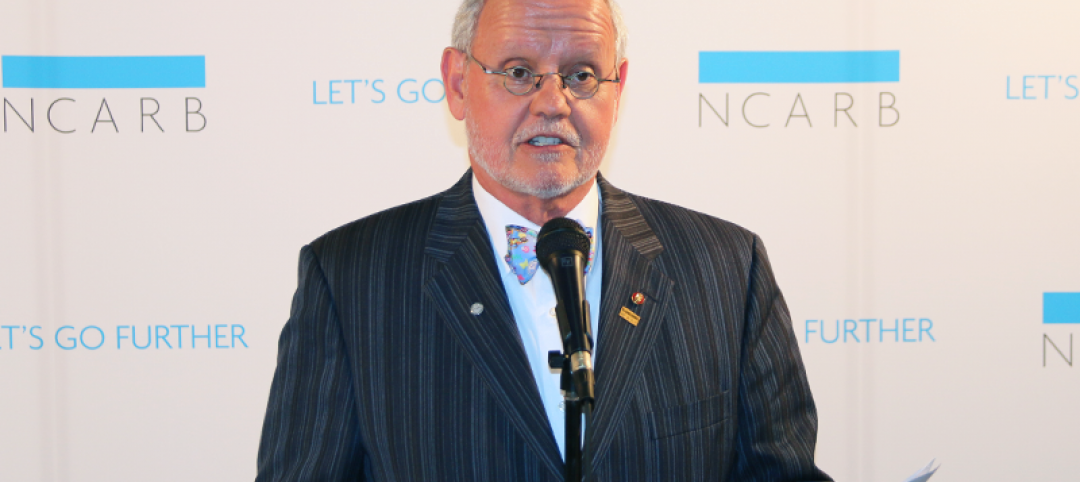Two prominent Atlanta-based design firms whose specialties include the hospitality sector are joining forces.
On Jan. 1, The Johnson Studio, which has been in business for more than 25 years and currently has 22 employees, will blend its operations into the Atlanta offices of Cooper Carry, a full-service architectural design firm founded in 1960, with offices in New York and Alexandria, Va., and an international portfolio.
Kevin Cantley, AIA, Carry Cooper’s CEO, says that his firm is one of the top three hotel designers in the country. As such, it has worked with myriad restaurant design firms, including The Johnson Group. “We are delighted to have them work alongside our talented hotel and retail team every day,” Cantley said about the merger.
Bill Johnson, AIA, Senior Principal and Founder of The Johnson Studio—whose first big restaurant design project was a Cheesecake Factory in Atlanta’s Buckhead neighborhood in the early 1990s—is staying on to lead the new business’s restaurant design practice. He will work with Cooper Carry’s seven Hospitality Studio principals.
The Johnson Studio will maintain its own brand. “This collaboration provides a platform for future services that we feel will be unparalleled,” said Johnson in a prepared statement.
According to its website, Cooper Carry has 11 specialty practices. Its services include architecture, interior design, landscape architecture, planning, sustainability consulting, and environmental graphics and wayfinding. The company emphasizes “environmentally responsible design,” as well as “connective architecture” that brings people and buildings within neighborhoods together.
Among its recent hotel design projects are the 1.1 million-sf Marriott Marquis Hotel in Washington, D.C., the 37,916-sf Sea Pines Plantation Golf Clubhouse in Hilton Head, S.C., and the 613,942-sf Hilton Cleveland Downtown.
Related Stories
Architects | May 17, 2015
NCARB wants the title ‘architect’ confined to those who are licensed
The Council is urging state licensing boards to come up with a substitute for the pre-licensure title ‘Intern.’
Museums | May 13, 2015
The museum of tomorrow: 8 things to know about cultural institutions in today’s society
Entertainment-based experiences, personal journeys, and community engagement are among the key themes that cultural institutions must embrace to stay relevant, write Gensler's Diana Lee and Richard Jacob.
Industrial Facilities | May 11, 2015
SOM-designed Manufacturing and Design Innovation Institute opens in Chicago
The new space will be a place for academia, industries, and civic bodies to collaborate.
Sponsored | Roofing | May 11, 2015
How architects can tap into the expertise of their metal roof manufacturer, part 2
Here are three things metal roof manufacturers can do to help the architect
BIM and Information Technology | May 10, 2015
How beacons will change architecture
Indoor positioning is right around the corner. Here is why it matters.
Architects | May 10, 2015
Harness the connection between managing risk and increasing profitability, Part 2
In Part 1, we covered taking control of the submittals schedule and managing RFIs. Let’s move on to properly allocating substitutions and limiting change orders.
Architects | May 10, 2015
Harness the connection between managing risk and increasing profitability, Part 1
AE firms need to protect themselves against vague contractual and procedural situations during all phases of the project in order to minimize their liability and exposure to risk, writes AEC industry consultant Steve Whitehorn.
Building Team | May 8, 2015
Construction industry adds 45,000 jobs in April
The construction industry saw an increase in jobs during the month of April after losing approximately 9,000 positions in March.
Building Team | May 8, 2015
Surety bond forms specifically for design-build projects now available
The documents are the first of their kind to be coauthored by designers and builders.
High-rise Construction | May 6, 2015
Parks in the sky? Subterranean bike paths? Meet the livable city, designed in 3D
Today’s great cities must be resilient—and open—to many things, including the influx of humanity, writes Gensler co-CEO Andy Cohen.

















